第67章 THE MERRY WIDOWS(10)
The accusation told of Euphemie's departure for Tarbes, where almost her first caller was this M.Henri Berens.The next day she gave up the lodgings rented by her late husband, to establish herself in rich apartments owned by one Fourcade, which she furnished sumptuously.The accusation dwelt on her purchase of horses and a carriage and on her luxurious way of living.It also brought forward some small incidentsillustrative of her distaste for the memory of her late husband.It dealt with information supplied by her landlord which indicated that her conscience was troubled.Twice M.Fourcade found her trembling, as with fear.On his asking her what was the matter she replied, I was thinking of my husband--if he saw me in a place furnished like this!''
(It need hardly be pointed out, considering the sour and avaricious ways of her late husband, that Euphemie need not have been conscience- stricken with his murder to have trembled over her lavish expenditure of his fortune.But the point is typical of the trivialities with which the acte d'accusation was padded out.)The accusation claimed that a young man had several times been seen leaving Euphemie's apartments at midnight, and spoke of protests made by Mme Fourcade.Euphemie declared herself indifferent to public opinion.
Public opinion, however, beginning to rise against her, Euphemie had need to resort to lying in order to explain her husband's death.To some she repeated the story of the onion-garlic-and-beans meal, adding that, in spite of his indigestion, he had eaten gluttonously later in the day.To others she attributed his illness to two indigestible repasts made at the fair.To others again she said Lacoste had died of a hernia, forced out by his efforts to vomit.She was even accused of saying that the doctor had attributed the death to this cause.This, said the indictment, was a lie.Dr Lasmolles declared that he had questioned Lacoste about the supposed hernia, and that the old man denied having any such thing.
What had brought about Lacoste's fatal illness was the wine Meilhan had made him drink at Rigeupeu fair.
With the rise of suspicion against her and her accomplice, Mme Lacoste put up a brave front.She wrote to the Procureur du Roi, demanding an exhumation, with the belief, no doubt, that time would have effaced the poison.At the same time she sent the bailiff Labadie to Riguepeu, to find out the names of those who were traducing her, and to say that she intended to prosecute her calumniators with the utmost rigour of the law.This, said the accusation, was nothing but a move to frighten the witnesses against her into silence.Instead of making good her threats the Widow Lacoste disappeared.
On the arrest of Meilhan search of his lodgings resulted in the finding of the note on Castera for 1772 francs, and of a sum of 800 francs in gold and silver.But of the deed creating the annuity of 400 francs there was no trace.
Meilhan denied everything.In respect of the wine he was said to have given Lacoste he said he had passed the whole of the 16th of May in the company of a friend called Mothe, and that Mothe could therefore prove Meilhan had never had a drink with Lacoste.Mothe, however, declared he had left Meilhan that day at three o'clock in the afternoon, and it was just at this time that Meilhan had taken Lacoste into the auberge where he lived to give him the poisoned drink.It was between three and four that Lacoste first showed signs of being ill.
Asked to explain the note for 1772 francs, Meilhan said that, about two months after Lacoste's death, the widow complained of not having any ready money.She had the Castera note, and he offered to discount it for her.This was a palpable lie, said the accusation.It was only a few days after Lacoste's death that Meilhan spoke to the Mayor about the Castera note.Meilhan's statement was full of discrepancies.He told Castera that he held the note against 2000 francs previously lent to the widow.He now said that he had discounted the note on sight.But the fact was that since Meilhan had come to live in Riguepeu he had been without resources.He had stripped himself in order to establish his son in a pharmacy at Vic-Fezensac.His profession of schoolmaster scarcely brought him in enough for living expenses.How, then, could he possibly be in a position to lend Mme Lacoste 2000 francs? And how had he managed to collect the 800 odd francs that were found in his lodgings? The real explanation lay in the story he had twice given to the Mayor, M.Sabazan: he was in possession of the Castera note through the generosity of his accomplice.
Meilhan was in still greater difficulty to explain the document which had settled on him an annuity of 400 francs, and which had been seen in his hands.Denial was useless, since he had asked the Mayor to make a draft for him, and since he had shown that functionary the deed signed by Mme Lacoste.Here, word for word, is the explanation given by therubicund Joseph:
My son,'' he said, kept asking me to contribute to the upkeep of one of his boys who is in the seminary of Vic-Fezensac.I consistently refused to do so, because I wanted to save what little I might against the time when I should be unable to work any longer.Six months ago my son wrote to the cure, begging him to speak to me.The cure, not wishing to do so, sent on the letter to the Mayor, who communicated with me.I replied that I did not wish to do anything, adding that I intended investing my savings in a life annuity.At the same time I begged M.Sabazan to make me a draft in the name of Mme Lacoste.She knew nothing about it.